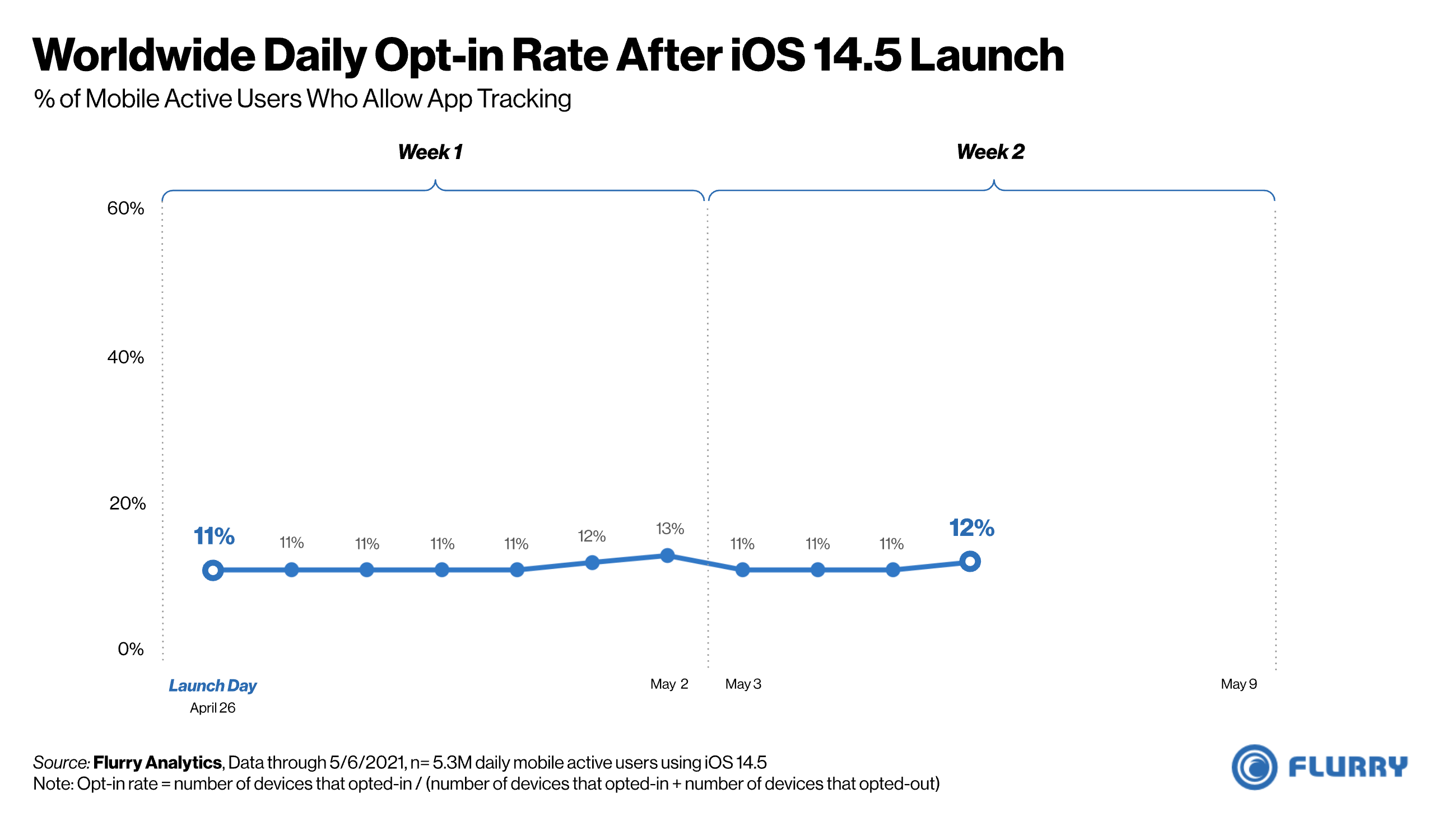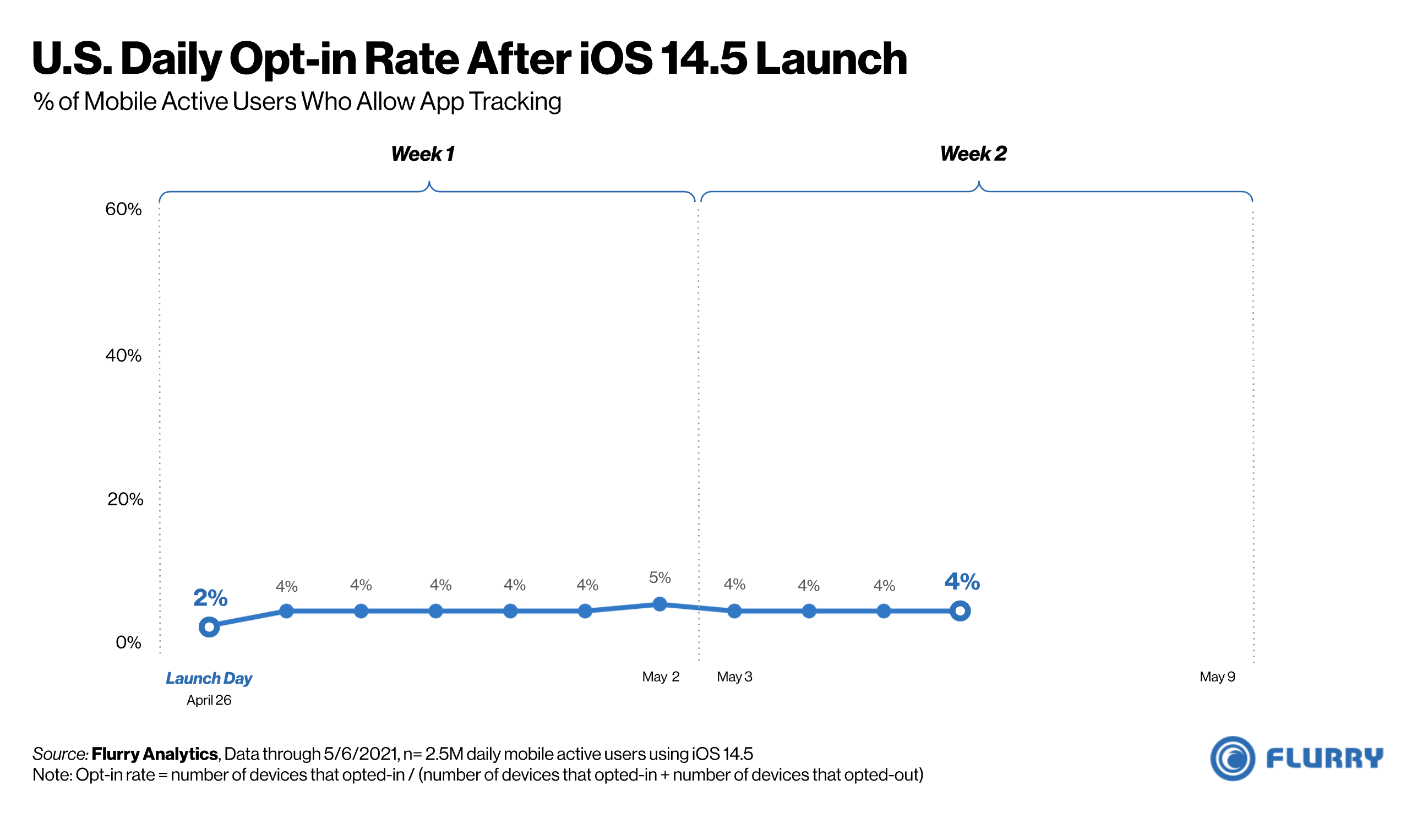
A majority said they expected Facebook to track their activity within Facebook, as well as within sibling apps like Instagram and WhatsApp. But 61% said they would not “expect Facebook to track a person’s usage of apps that Facebook does not own in order to make ads more targeted.”
That was survey data, but now we have some real-world numbers — and they look quite a bit worse for Facebook and any other app or ad platform that tracks users across apps.
The latest version of iOS, 14.5, features something called App Tracking Transparency, which requires apps to specifically ask users for permission to track their activity across other companies’ apps and websites.
The app analytics company Flurry is tracking how many iPhone and iPad users are saying “Sure, I’d enjoy being tracked by a corporation across every aspect of my online life” rather than “Um, no.” The answer is: not very many!


Those charts show the percentage of people giving a thumbs-up to cross-app tracking whenever they’re prompted about it, both worldwide and in the United States. The numbers have been quite steady: Only about 4% of U.S. iOS users and about 11% of worldwide iOS users are saying yes to tracking.
That is…not a lot!
This is a problem for Facebook, given that (a) iPhone and iPad users have long been more valuable from a revenue point of view than Android users, (b) iOS users tend to update their phones quite rapidly compared to other platforms, and (c) all that cross-app data is a major part of how Facebook generates the targeting that makes its ads so valuable. (Facebook knows a lot of things about you — but it doesn’t know them all because you wrote a Facebook post about it in 2015 or something.) Some project this one change could cost Facebook 7% of its revenue.
(Which is why Facebook is trying to passive-aggressively “educate” its users into giving in to tracking.)
Facebook will still have a ton of first-party data to work with from all its apps. (So will its duopoly-mate Google, which has similar assets and vulnerabilities.) Indeed, this will hurt a bunch of anonymous adtech companies with odd names like Teramoat, Brangoh, Spongymind, Spercuity, and Quokka most.1
What’ll be the impact on publishers? In the short term, there’ll probably be a revenue hit; news sites fill ad space with targeted ads too, and those will now be a little worse. In the longer term, this increases the chance there’ll be a cleansing flood of adtech middlemen, which is probably a necessary condition for any eventual recovery in publisher-sold advertising. Facebook and Google became the big dog of online advertising by having the best targeting data; now their data will be a bit worse.
The most important takeaway for publishers: Get better and smarter at gathering your own first–party data. Quality publishers tend to have a more substantial relationship with their readers than SomeRandomSiteOnTheWeb.com; take advantage.